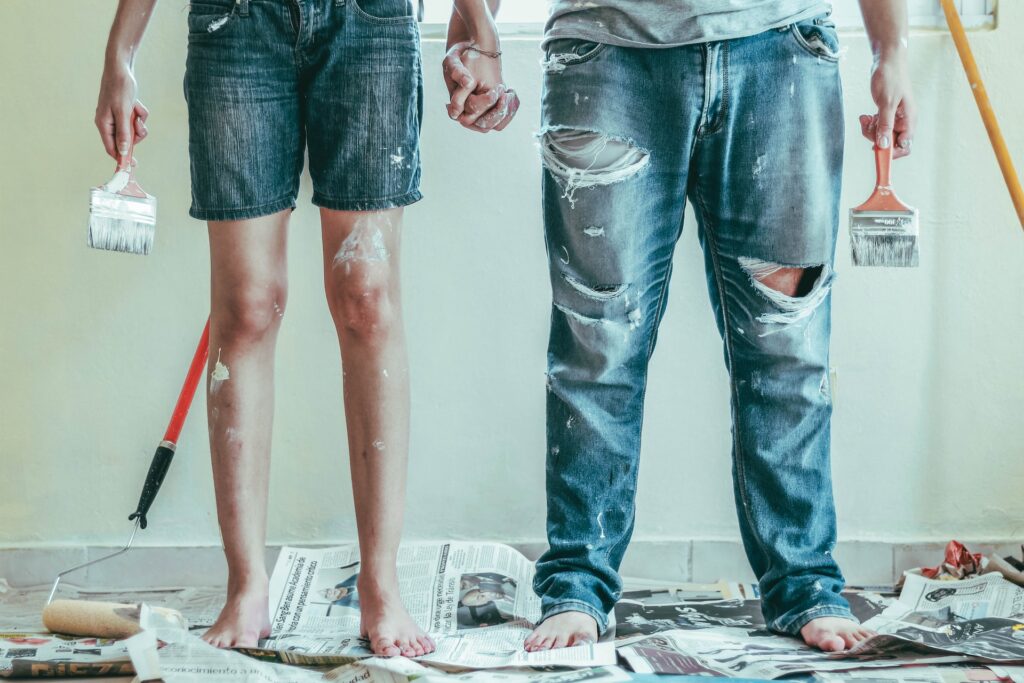Are you a landlord, rental property owner, or real estate investor? If so, you know that keeping your property rented and well-managed can be a lot of work. But it’s important work, and there are some hacks that can make it a little bit easier. Check out these nine easy rental home management hacks to get started!
1. Get to know your tenants
As a landlord, it’s important to get to know your tenants. Not only will this help you build a good relationship with them, but you’ll also be able to better understand their needs and expectations. There are a few ways you can get to know your tenants:
-
Talk to them! Get to know them on a personal level. Ask about their families, their jobs, and their hobbies.
-
Observe them. Pay attention to how they interact with others and how they take care of their property.
-
Keep an open mind. Try not to prejudge your tenants based on first impressions.
Getting to know your tenants can be beneficial for both parties involved. By getting to know your tenants, you can create a more positive and productive rental relationship.
2. Inspect the property regularly
As a landlord, you have the right to enter your rental property at any time as long as you give your tenant proper notice. There are three main types of inspections you can do: move-in, routine, and move-out.
Move-in inspection
This is an inspection that is done when a tenant first moves in. It is important to do this so that you can document the condition of the property and identify any pre-existing damage. This will protect you from being held responsible for damage that is subsequently caused by the tenant.
Routine inspection
This is an inspection that is done on a regular basis, typically once every few months. This allows you to check on the condition of the property and make sure that the tenant is taking good care of it.
Move-out inspection
This is an inspection that is done when a tenant moves out. It is important to do this so that you can document any damage that was caused by the tenant and make sure that the property is left in good condition.
There are many benefits to inspecting your rental property on a regular basis. First, it allows you to keep tabs on the condition of the property and make sure that it is being well-maintained. Second, it gives you an opportunity to identify any problems early on and address them before they become bigger issues. Finally, it helps to build trust with your tenants by showing them that you are interested in maintaining a safe and comfortable home for them.

Photo by Roselyn Tirado on Unsplash
3. Keep up with maintenance
As a rental property owner, you know that keeping up with maintenance is important. Not only does it keep your property in good condition, but it can also save you money in the long run. Here are 10 common maintenance items on rental property:
1. Regularly check for leaks and repair them promptly.
2. Inspect the gutters and downspouts regularly to ensure they are clear of debris.
3. Check for cracks or holes in the exterior of the property and seal them up.
4. Inspect the roof periodically to look for any damaged or missing shingles.
5. Keep an eye on trees and shrubs around the property, trimming back branches that could fall on the property.
6. Maintain the landscaping around the property, including mowing the lawn and trimming bushes.
7. Clean out gutters and downspouts to prevent water damage to the property.
8. Inspect driveways and sidewalks for cracks or chips and repair them promptly.
9. Check windows and doors to make sure they are properly sealed and caulked.
10. Have the heating and cooling system serviced regularly to ensure it is working properly.
By following these tips, you can help keep your rental property in top condition and avoid costly repairs down the road.
4. Be responsive to tenant requests
It’s important for landlords to be responsive to tenant requests for a few reasons. First, it builds trust between the landlord and tenant. Second, it shows that the landlord cares about maintaining a good relationship with the tenant. And third, it can help prevent problems from getting worse.
There are a few things landlords can do to make it easy for tenants to contact them. One is to provide a phone number or email address that tenants can use to reach the landlord directly. Another is to set up an online portal where tenants can submit maintenance requests or ask questions. Finally, landlords can make sure their property management software is up to date and easy to use.
5. Be proactive about preventative measures
As a landlord, it’s always better to be proactive than reactive. By taking preventative measures, you can avoid many potential problems down the road. Here are five examples of proactive preventative measures you can take:
1. Inspect your rental property regularly. This will help you catch any maintenance issues early on and nip them in the bud before they become bigger, more expensive problems.
2. Screen your tenants carefully. Thoroughly vetting potential tenants can help you avoid problem renters who may cause damage or disturb other tenants.
3. Have a solid lease agreement in place. A well-written lease agreement can protect you from liability if something goes wrong with your rental property or tenants.
4. Stay up-to-date on local ordinances and make sure your property complies with them. This will help you avoid any fines or other penalties.
5. Be responsive to your tenants’ needs and concerns. By addressing them in a timely manner, you can head off potential issues before they arise.
6. Keep good records
Good record keeping is important for landlords for a number of reasons. It helps you keep track of your property, your tenants, and any expenses or income associated with the property. Good records can also help you resolve disputes with tenants, and make it easier to file taxes on your rental income.
Some of the most important items to keep records of include:
-
Rental agreements
-
Lease renewals
-
Rent payments
-
Security deposit information
-
Maintenance and repair records
-
Communications with tenants
-
Any incidents or accidents that occur on the property
-
Insurance information
-
Tax records
Keeping good records can be time-consuming, but it’s worth it in the long run. By keeping accurate records, you can avoid problems down the road and make sure your rental business runs smoothly.

Photo by Anete Lūsiņa on Unsplash
7. Have a solid rental agreement
A good rental agreement is important for a landlord because it sets out the terms of the tenancy, including the rent amount, length of the tenancy, and other important details. This agreement protects both the landlord and tenant by clearly outlining the expectations and responsibilities of each party. Additionally, a well-written rental agreement can help to avoid misunderstandings or disputes down the road.
There are several key parts that should be included in a rental agreement, such as:
-
Names of the landlord and tenant
-
Address of the rental property
-
Rent amount and frequency (e.g., monthly)
-
Length of the tenancy (e.g., 12 months)
-
Start date of the tenancy
-
Description of the property, including any amenities
-
Landlord’s contact information
-
Tenant’s obligations, such as paying rent on time and keeping the property clean and in good repair
-
Landlord’s obligations, such as making repairs in a timely manner
-
Any rules or regulations about the property, such as quiet hours or pet policies
-
Signature lines for both the landlord and tenant to sign and date the agreement
By including all of these key components in your rental agreement, you can help to ensure a smooth and successful tenancy.
8. Be prepared for the worst
As a landlord, you might think you’re prepared for anything that can come your way. But the truth is, there are always going to be surprises – some good and some bad. Here are a few things that you should be prepared for, as well as some tips on how to handle them:
Unexpected maintenance issues
No matter how well you take care of your rental property, there will always be the occasional maintenance issue that pops up. It could be something as minor as a clogged sink or a leaky faucet, or it could be something major like a broken water heater or a roof leak. Either way, it’s important to have a plan in place for dealing with these issues when they arise.
One of the best ways to handle unexpected maintenance issues is to have a good relationship with a reputable repair person or company. That way, you can call them up as soon as something goes wrong and they’ll be able to come out and fix the problem quickly.
Another thing you can do is set aside some money each month into a reserve fund for these sorts of emergencies. That way, you won’t have to scramble to come up with the money when something does go wrong.
Unexpected tenant issues
Just as there will always be unexpected maintenance issues, there will also always be unexpected tenant issues. Your tenants might suddenly stop paying rent, or they might cause damage to your property. They might even stop taking care of the property and let it fall into disrepair.
Again, it’s important to have a plan in place for dealing with these sorts of issues. One thing you can do is require your tenants to get renters insurance. That way, if they do cause any damage to your property, their insurance will cover it.
You should also have a solid lease agreement that outlines what your tenants are responsible for and what will happen if they don’t meet their obligations. This will give you some legal recourse if you need to take action against them.
Unexpected vacancies
Even if you have great tenants who pay their rent on time and take care of your property, there’s always the possibility that they’ll move out unexpectedly. This can happen for a variety of reasons – they might get a new job in another city, they might decide to buy their own home, or they might simply decide they don’t like living in your property anymore.
Whatever the reason, it’s important to be prepared for the possibility of an unexpected vacancy. One way to do this is to have a solid marketing plan in place so you can quickly find new tenants to fill the vacancy. You should also have some money saved up so you can cover your mortgage and other expenses if your rental property is vacant for a period of time.
These are just a few of the things that can happen when you’re a landlord. While you can’t prepare for everything, following these tips will help you be as prepared as possible for the unexpected.

Photo by Magnet.me on Unsplash
9. Hire a professional property manager (if you’re not up for the challenge yourself!)
A professional property manager can save a real estate investor a lot of time and money. A good property manager will screen tenants, collect rent, handle maintenance and repair issues, and keep accurate financial records. A professional property manager can also help an investor maximize their return on investment by expertly marketing the property and keeping it rented to qualified tenants.
The benefits of hiring a professional property manager include:
-
Screening tenants to find qualified renters who will take good care of your property
-
Collecting rent and handling late payments
-
Dealing with maintenance and repair issues in a timely manner
-
Keeping accurate financial records
-
Marketing your property to keep it rented to qualified tenants
A good property manager will have experience in all of these areas – and more – and will be able to effectively manage a rental property for an investor. Hiring a professional property manager is a smart move for any real estate investor who wants to save time and money while still getting the most out of their investment.
Blog post written by J. Scott Digital freelance copywriting services, featured photo Photo by Scott Webb on Unsplash
